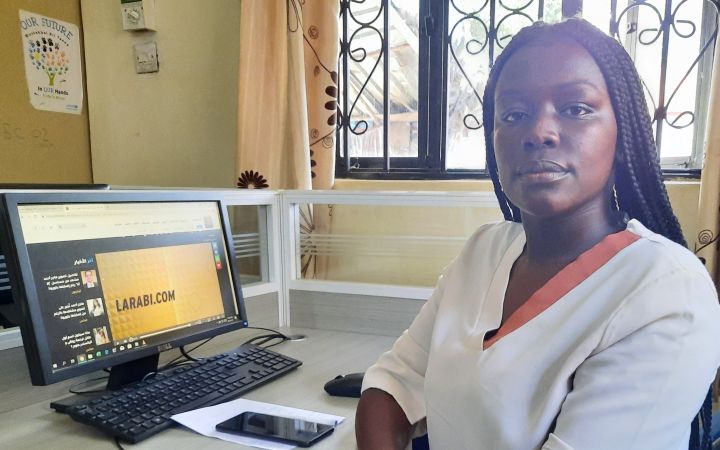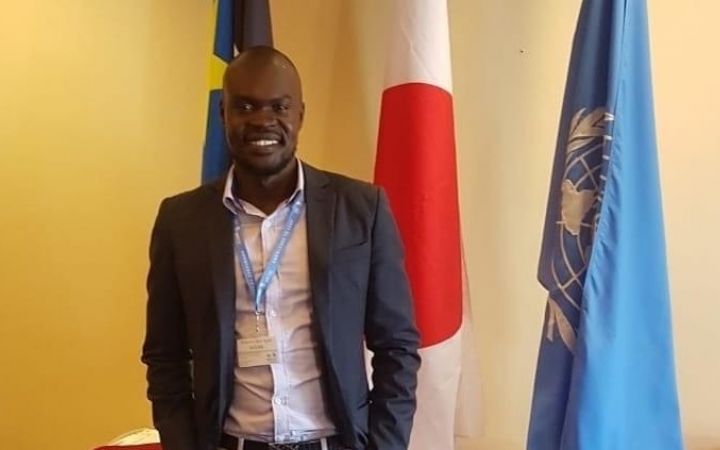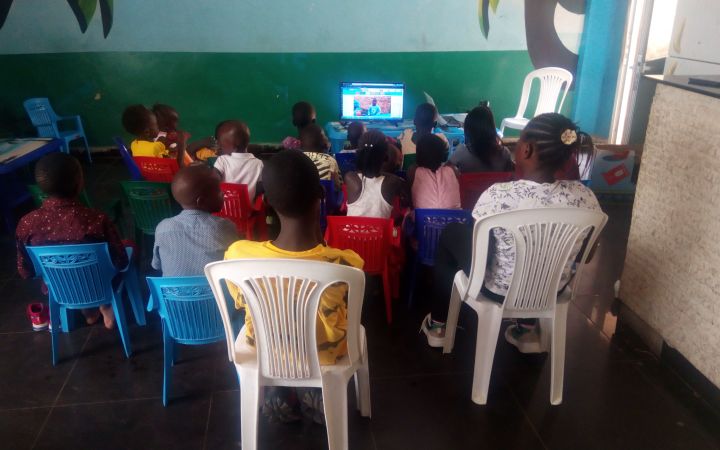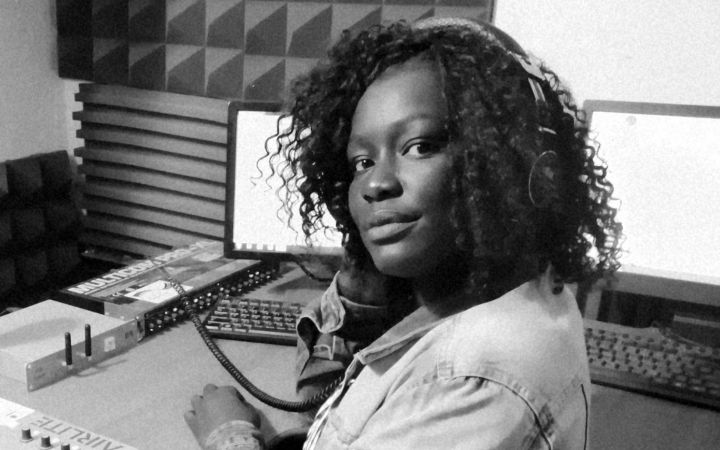- Tabu Elder and Baria Johnson Kibo are two of nearly 100 young South Sudanese professionals who took part in the 2020-21 UNITAR Building Bridges: Entrepreneurship and Project Planning in South Sudan Programme.
- The online programme is financially supported by the government and the people of Japan and conducted with the institutional support of the government of South Sudan.
- Tabu is now passing on what she learned through volunteer teaching of entrepreneurs and hopes to create a community project in water, sanitation, and hygiene.
- Baria ran a needs assessment in her own workplace and hopes to set up vocational training for women in the future.
- Internet is costly and unstable in South Sudan. To support the learning, UNITAR Division for Prosperity gave each participant a data package and increased the number of local coaches.
18 February 2022, Hiroshima, Japan - UNITAR alumnae Tabu Elder and Baria Johnson Kibo are both passionate about empowering women and youth in Juba to better their livelihoods. Tabu is a lecturer on peace and diplomacy at the University of Juba who also volunteers for community development programmes. Baria is a broadcast journalist who is passionate about using media to air the voices of the most vulnerable people to enhance good governance and improve livelihoods.
The two young women were among the nearly 100 young South Sudanese professionals brought together in the 2020-21 UNITAR Building Bridges: Entrepreneurship and Project Planning in South Sudan Programme.
The programme
Supported by the government and the people of Japan and conducted with the institutional support of the government of South Sudan, this countrywide training programme taught South Sudanese professionals entrepreneurship and project planning skills. It is part of UNITAR's support for the reconstruction and development of South Sudan as it emerges from decades of devastating conflict and civil strife.
With the COVID-19 pandemic making in-person learning difficult, the programme was run entirely online. The participants completed self-paced microlessons and assignments, while South Sudanese coaches gave them valuable guidance and added local context to the content. Interacting with course-mates and the coaches - including the dynamic 2019 programme alumnus and coach Khamis Bol - provided a memorable experience for many.
Applying what they learned
Tabu and Baria both believe that if security in the country improves, it will spark entrepreneurship opportunities for more people and help them build a peaceful and prosperous South Sudan.
Tabu is already sharing what she learned from UNITAR with start-up entrepreneurs and local-business employees through her volunteer teaching work. She is also hoping to start a community project in water, sanitation and hygiene and is confident she now has the skills to set up, run, and monitor it.
I want to serve people where my knowledge and skills will be utilized to the fullest. - Tabu Elder
Meanwhile, Baria immediately used her favourite new tool, a needs assessment, with her colleagues at Radio Bakhita. "Having a chance to apply what we learned in our workplaces was very exciting," she says. Her director plans to use the assessment findings to improve how the radio station operates.
In the next few years, Baria hopes to establish a vocational training centre that can empower women and youth and provide them with the essential skills to create career opportunities. She especially wants to focus on women so they can be self-sufficient and confident.
Women who are not educated are facing a lot of challenges to get or create jobs for themselves. They depend mostly on their husbands, brothers, or whoever is taking care of their family. But the moment that person is not there anymore, then they become so vulnerable. - Baria Johnson Kibo
Other programme alumni have also found the content useful and practical. In the post-programme evaluation survey, 100% of the participants who responded believed that what they learned in the programme was relevant to them and they will use it in the future.
Online learning: an opportunity and a challenge
The UNITAR programme was the first online course Baria had ever taken. She was fascinated with tools like EdApp (a mobile-based learning platform) and looked forward to hearing her coursemates' opinions in the online discussions.
Going online in South Sudan is not without its challenges, however. Internet is costly and unstable, even in the capital city of Juba. To help make learning as smooth as possible, UNITAR issued each participant a SIM card and data package to access the course and increased the number of local coaches so participants could seek help even with limited internet access. These measures helped the programme run safely and efficiently, reaching more participants than UNITAR's past in-person programmes.
The future
Baria and Tabu both intend to engage with UNITAR in future programmes, possibly as coaches, so they can make a positive impact on the lives of young women and youth - the same kind of impact Khamis and other national coaches had on them.
People should get to know what UNITAR is doing. They should get to hear from me, friends and other colleagues. - Tabu










